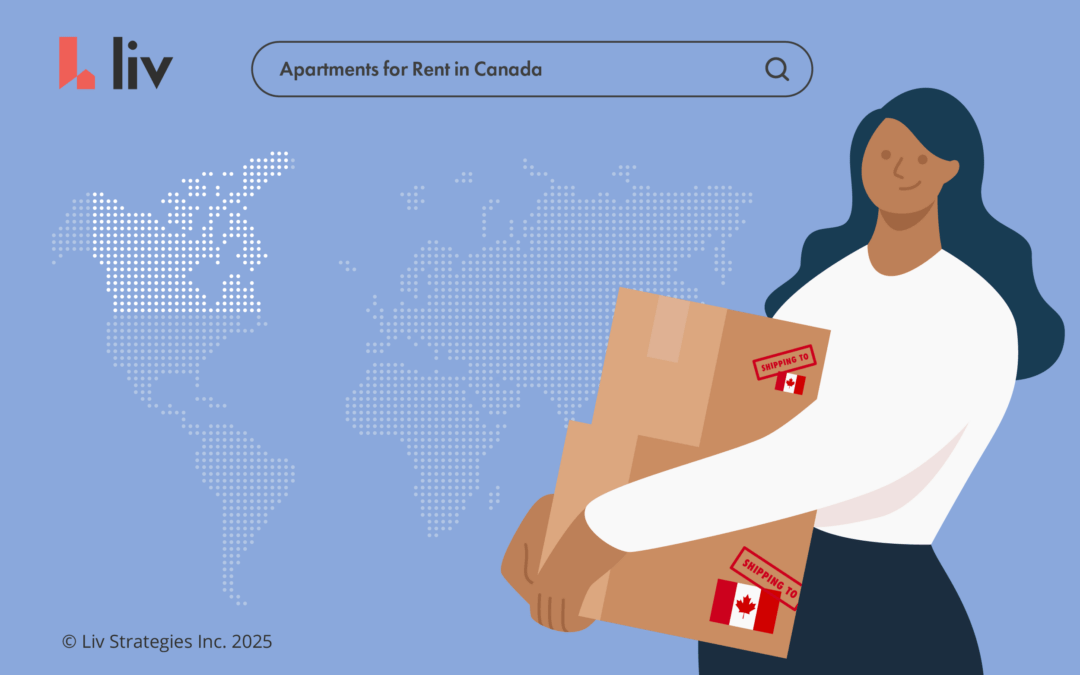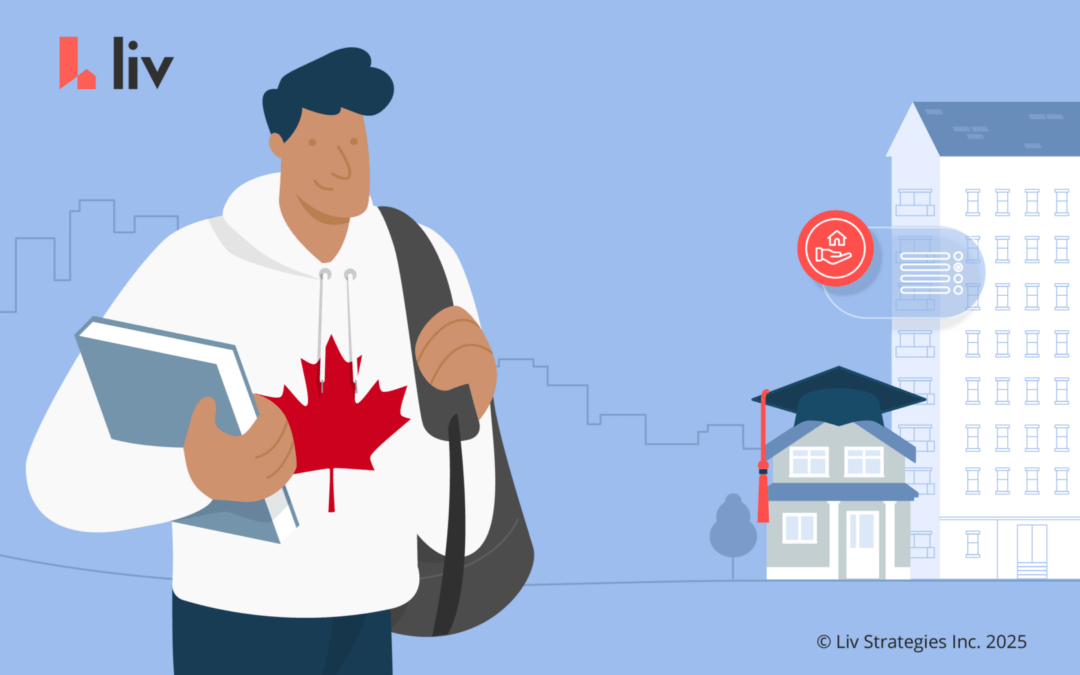For this series, liv.rent welcomes TaxBack™ to our blog to provide tax-related tips and information to our readers – landlords and tenants alike. TaxBack’s™ first post focuses on the tax benefits available to those working from home. Though many have returned to the office over the past few years, some Canadians are still working at least partially from home – meaning they’re likely still eligible for Work From Home tax credits. In this guide, TaxBack™ answers the Top 5 questions you are asking about what tax relief you can claim when working from home in Canada, how to claim it, and more.
Landlords & Property Managers
Advertise your rental for free on liv.rent – an all-in-one rental platform.
1. What expenses can I claim working from home?
So, you’ve begun working from home and are unsure about your entitlements regarding tax reliefs on the cost of working from home. Don’t worry, this is a common occurrence, as many people often struggle to know their tax entitlements and what they could be owed. The good news is that regardless of whether you work full-time or part-time, you could still be eligible for tax relief.
What you can claim tends to vary and depends on the type of work that you do. For those working at home, typically a percentage of the costs related to a home office will be deductible. However, for a salesman or long haul trucker, tax relief related to travel, food and lodging may also be available to them.
The most common distinction the CRA makes is between full-time employees vs. those who are categorized as self-employed. According to Canadian Tax laws, both can claim a deduction for expenses listed below if:
- Your home is your principal place of work; or
- You dedicate a particular room or space exclusively for earning income
Though #2 may be more difficult, the COVID-19 pandemic has made #1 the norm for countless Canadians and, as a result, many will be able to claim tax relief on expenses incurred at their home office, such as:
- utility bills (electricity, heat and water)
- maintenance
- property taxes
- home insurance
- home office/workspaces expenses (internet bills, computers, or office supplies)
- tools or tradespersons, mechanics, apprentices, and forestry workers
- license fees
- training costs (when upgrading your skills that relate to your employment)
If you’re a commission-based employee, your list of possible employment expenses also includes:
- food and beverages for yourself if you are away from home
- entertainment expenses for clients
- car expenses, travel costs and overnight stays on business trips
However, you should also be aware of costs that do not count as expenses, namely:
- Mortgage interest
- Capital cost allowance
2. Am I eligible to claim these expenses?
In order to claim work-related expenses:
YOUR EMPLOYER WILL NEED TO:
- Sign a Form T2200 (Declaration of Conditions of Employment). They will need to certify in question #10 of the form that you were required to work from home more than half the time during a specific period in the year (i.e. COVID-19 pandemic).
- Provide examples of expenses you have as part of your work, as well as whether or not you received any reimbursement for them.
YOU WILL NEED TO:
- Include a list of your required tools with your T2200 Form, if you work as a tradesperson or mechanic.
- Keep all of your relevant receipts and invoices for the eligible expenses for 6 years after the end of the tax year, in case you need them as evidence of the expenses.
- Work mainly from your home (i.e. more than 50% of the time) to claim these expenses according to the CRA guidelines.
- Have a separate workspace in your home which you use only to earn employment income.
- Use the workspace regularly and for a continuous period of time to meet clients, customers, or other people in the course of your work responsibilities. However, the CRA will recognize that COVID-19 impacted peoples’ ability to meet in person with clients and customers.
There are two different methods of claiming work-from-home expenses: a temporary flat rate method and a detailed method.
The Temporary Flat Rate method allows a worker to claim a maximum of $500 when filing their 2022 and 2023 tax returns ($400 for 2020 returns). It can be claimed if the individual worked more than 50% of the time from home for a period of at least four consecutive weeks.
The Detailed method requires individuals to complete Form T777S or Form T777. You will also need to get a completed and signed Form T2200S or Form T2200 from your employer.
NOTE: If your employer fully reimburses you for out-of-pocket expenses related to your job, you can’t claim these amounts when you file taxes.
3. What if I’ve returned to the office now – can I still claim expenses?
Yes – if you worked from home during some period of this year as required by most employers during the COVID-19 pandemic, you can legitimately claim home office expenses even if you’ve now returned to your office or workplace. You will need to prorate your expenses based on space (the percentage of your home used for work) and time (the weeks/months you used the space for work).
4. How do I claim work from home expenses on my tax return?
As well as filing your annual income tax return form (T1), you must also file a Form T777 (Statement of Employment Expenses). This form allows you to calculate how much eligible work-related expenses you can claim. You’re entitled to deduct the part of your costs that relates to your workspace – expenses like utilities, rent, office supplies etc.
5. Who can help me claim my tax entitlements?
Tax refund professionals can help you claim your tax entitlements. Tax refund professionals are especially helpful for those who are here on work visas or who’ve had to return to their home countries due to the pandemic and may be unfamiliar with Canadian tax law.
Our recommended choice is TaxBack™ – a team of tax experts who have been providing personal and corporate tax solutions for over 20 years to Canadian residents and non-residents. Their average Canadian tax refund is $998 so it’s definitely worth claiming back what you’re owed!
Register now for your free tax refund estimation:
- Non-resident tax filing application here.
- Resident tax filing application here.
- Tax refund calculator here.
- Unsure of your residency status for tax purposes? Register for a call back from a Taxback.com agent now.
If you are a verified liv.rent user, you are eligible for an exclusive discount – $15 CAD off TaxBack’s tax filing services. Not on liv.rent yet? Click here to sign up now to get the full digital rental experience and access to the exclusive Taxback™ discount.
Access our Exclusive Offer with Taxback.com here
Once you complete the short online Taxback™ application form, the Taxback™ team will handle all of the tricky tax paperwork and transfer your refund straight to your bank account anywhere in the world.

Taxback™ provides personal & corporate tax solutions. We will help you claim tax refunds and file tax returns.

Rethink The Way You Rent
Not on liv.rent yet? Experience the ease of digital applications & contracts, verified tenants & landlords, virtual tours and more – all on one platform. Sign up for free or download the app.
Subscribe to receive the latest tenant & landlord tips and get notified about changes in the Canadian rental market.
>> Stay up-to-date on the average rent in Vancouver, Toronto and Montreal: Rent Reports.



0 Comments